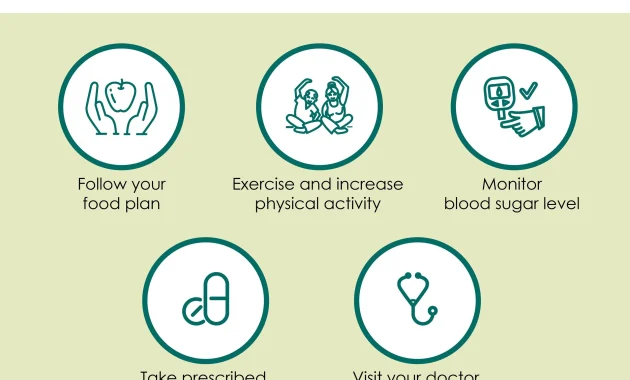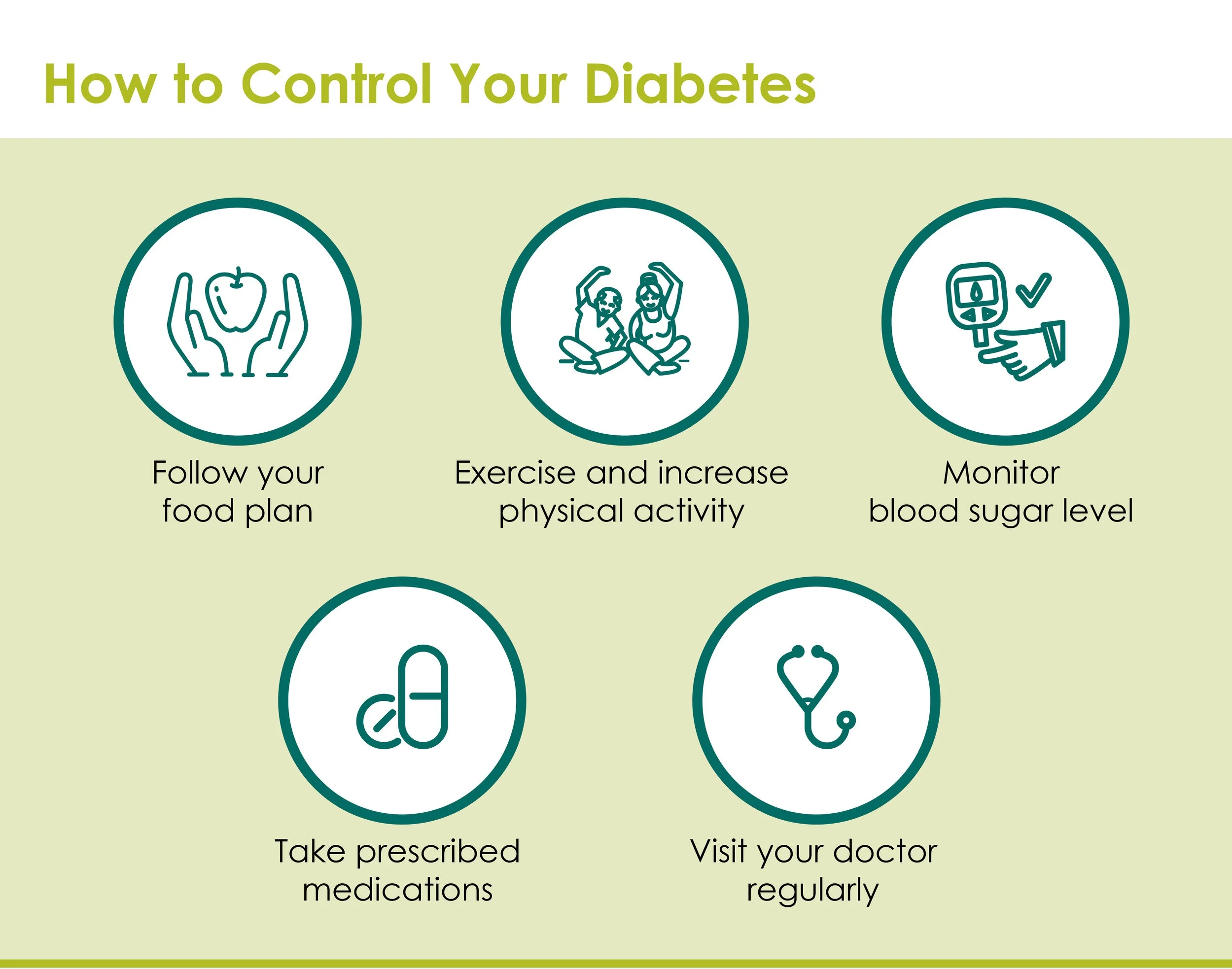
How to Beat Diabetes: Secrets Doctors Don’t Always Share
Diabetes, a chronic metabolic disorder, affects millions worldwide. It’s a condition where the body struggles to regulate blood sugar levels. This article explores effective strategies on how to beat diabetes, focusing on insights often overlooked by conventional medical advice. We will delve into lifestyle adjustments, dietary changes, and other approaches. These approaches can help manage and potentially reverse diabetes. This information is not a substitute for professional medical advice. Always consult your doctor before making significant changes to your treatment plan.
Understanding Diabetes: The Basics
Diabetes isn’t a single disease. It encompasses several conditions. The most common types are Type 1 and Type 2 diabetes. Type 1 is an autoimmune disease. The body attacks the insulin-producing cells in the pancreas. Type 2 diabetes is more prevalent. It’s often linked to lifestyle factors like diet, exercise, and genetics. Gestational diabetes occurs during pregnancy. It usually resolves after childbirth. Understanding these distinctions is crucial to addressing them effectively.
Type 2 Diabetes: A Deeper Dive
Type 2 diabetes is often preventable and manageable. It develops when the body becomes resistant to insulin. Insulin is a hormone that regulates blood sugar. The pancreas may also lose its ability to produce enough insulin. This leads to elevated blood glucose levels. Risk factors include obesity, lack of physical activity, and a poor diet. Family history also plays a role. Early detection is key. It allows for timely interventions. These interventions can help prevent complications.
The Conventional Approach to Diabetes Management
Traditional diabetes treatment primarily involves medication. Oral medications and insulin injections help regulate blood sugar. Doctors also emphasize regular monitoring. This includes blood glucose checks and A1c tests. Dietary recommendations often focus on carbohydrate counting. This approach helps manage blood sugar levels. Exercise is a crucial part of the treatment plan. Regular physical activity improves insulin sensitivity. However, the conventional approach sometimes overlooks crucial aspects. These aspects can significantly affect diabetes management.
Secrets Doctors Don’t Always Tell You: Lifestyle Changes
Beyond medication, several lifestyle changes can dramatically impact diabetes. These changes are often discussed but sometimes lack emphasis. They are essential for effective diabetes management.
Dietary Modifications: Going Beyond Carb Counting
While carbohydrate counting is important, it’s not the whole story. Focusing on the quality of carbohydrates is vital. Prioritize whole, unprocessed foods. Limit refined grains, sugary drinks, and processed snacks. Emphasize fiber-rich foods. These foods slow down glucose absorption. Increase intake of non-starchy vegetables. These include leafy greens, broccoli, and cauliflower. Incorporate healthy fats. These include avocados, nuts, and olive oil. Healthy fats improve insulin sensitivity. Consider a low-carb or ketogenic diet. These diets can be highly effective for managing blood sugar. Always consult your doctor before making major dietary changes.
The Power of Regular Exercise
Exercise is a cornerstone of diabetes management. It improves insulin sensitivity and helps lower blood sugar. Aim for at least 150 minutes of moderate-intensity exercise weekly. This can include brisk walking, cycling, or swimming. Incorporate strength training exercises. These build muscle mass and boost metabolism. Vary your workouts. This helps prevent boredom and keeps your body challenged. Find activities you enjoy. This increases the likelihood of adherence. Exercise can also improve mental health. This is a crucial factor in diabetes management.
The Importance of Stress Management
Chronic stress can worsen blood sugar control. It triggers the release of hormones. These hormones increase blood glucose levels. Practice stress-reduction techniques. These include meditation, yoga, and deep breathing. Engage in activities you find relaxing. These can include hobbies or spending time in nature. Ensure adequate sleep. Sleep deprivation can also raise blood sugar. Prioritize mental well-being. It plays a significant role in overall health.
Secrets Doctors Don’t Always Tell You: Natural Remedies
Some natural remedies may help manage diabetes. These remedies can be used in conjunction with conventional treatments. Always discuss these options with your healthcare provider.
Herbal Supplements and Their Potential
Certain herbs show promise in managing blood sugar. Cinnamon may improve insulin sensitivity. Berberine can help lower blood glucose levels. Alpha-lipoic acid (ALA) is an antioxidant. It may help with nerve damage. Bitter melon has been traditionally used for diabetes. Consult with a qualified healthcare professional. This is crucial before taking any supplements. This will ensure safety and appropriate dosage.
The Role of a Healthy Gut
Gut health plays a crucial role in overall health. It also impacts blood sugar control. A healthy gut microbiome can improve insulin sensitivity. Consume probiotic-rich foods. These include yogurt, kefir, and sauerkraut. Eat prebiotic-rich foods. These include garlic, onions, and bananas. Consider taking a probiotic supplement. These supplements support gut health. A healthy gut can also improve nutrient absorption. This is essential for overall health and well-being.
The Importance of Patient Education and Support
Managing diabetes effectively requires education and support. This includes understanding the disease. It also includes learning how to manage it.
Finding the Right Support System
Join a diabetes support group. This provides a sense of community. It also offers shared experiences. Connect with other people living with diabetes. This reduces feelings of isolation. Talk to your healthcare team. This includes doctors, nurses, and dietitians. Seek support from family and friends. They can provide encouragement and practical help. A strong support system can significantly improve outcomes.
Continuous Learning and Adaptation
Diabetes management is an ongoing process. Stay informed about the latest research. Read books, articles, and attend webinars. Learn about new technologies. These technologies can help manage diabetes. Be open to adjusting your approach. What works today may not work tomorrow. Regularly review your treatment plan with your healthcare provider. This will ensure it remains effective. Continuous learning is vital for successful diabetes management.
How to Beat Diabetes: Putting it All Together
How to beat diabetes requires a multifaceted approach. Combine conventional treatments with lifestyle changes and natural remedies. Prioritize dietary modifications. Focus on whole foods and limit processed foods. Engage in regular exercise. Manage stress and prioritize mental well-being. Consider incorporating natural remedies. Always consult with your healthcare provider. Seek support from a community. Stay informed and adapt your approach. By taking proactive steps, individuals can effectively manage and potentially reverse diabetes. This can improve their overall quality of life. The journey to beat diabetes is a personal one. It requires commitment and perseverance.
The Future of Diabetes Management
Research continues to advance diabetes management. New technologies and treatments are emerging. Continuous glucose monitors (CGMs) provide real-time blood sugar data. Insulin pumps offer more precise insulin delivery. Artificial pancreas systems are being developed. These systems automate insulin delivery. Research is also exploring new medications. These medications may help manage or even cure diabetes. Stay informed about these advancements. Discuss them with your healthcare provider. The future of diabetes management looks promising. It offers hope for improved outcomes and better quality of life. The information presented here should help you on your journey on how to beat diabetes.
In conclusion, how to beat diabetes involves a proactive and comprehensive approach. It goes beyond simple medication. It includes dietary changes, regular exercise, and stress management. These are important strategies. Incorporating natural remedies and seeking support are also key components. By taking control of their health, individuals can effectively manage diabetes. They can also significantly improve their quality of life. Remember, this information is not a substitute for professional medical advice. Always consult with your doctor before making any changes to your treatment plan. This is crucial for safe and effective diabetes management.
[See also: Related Article Titles]

